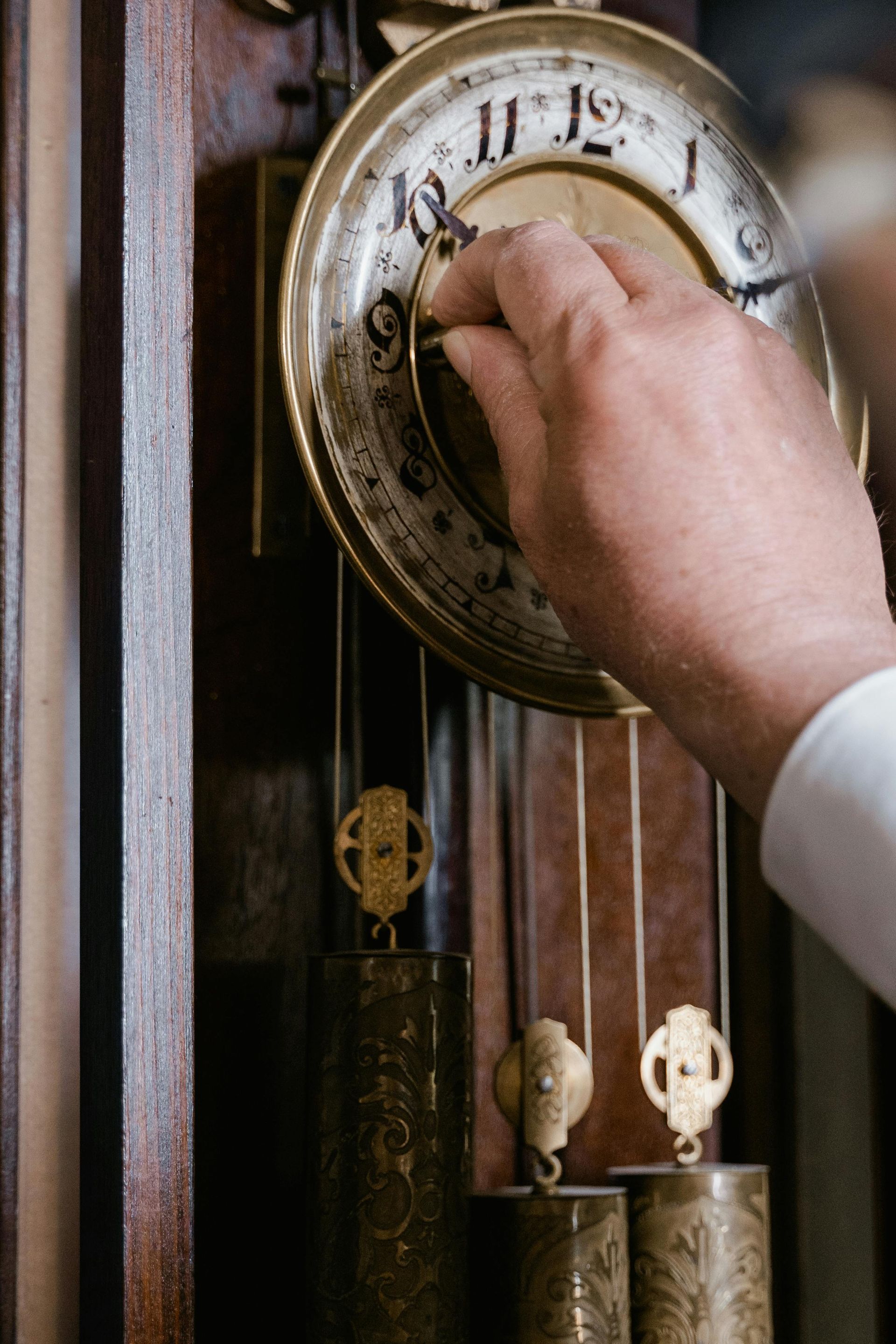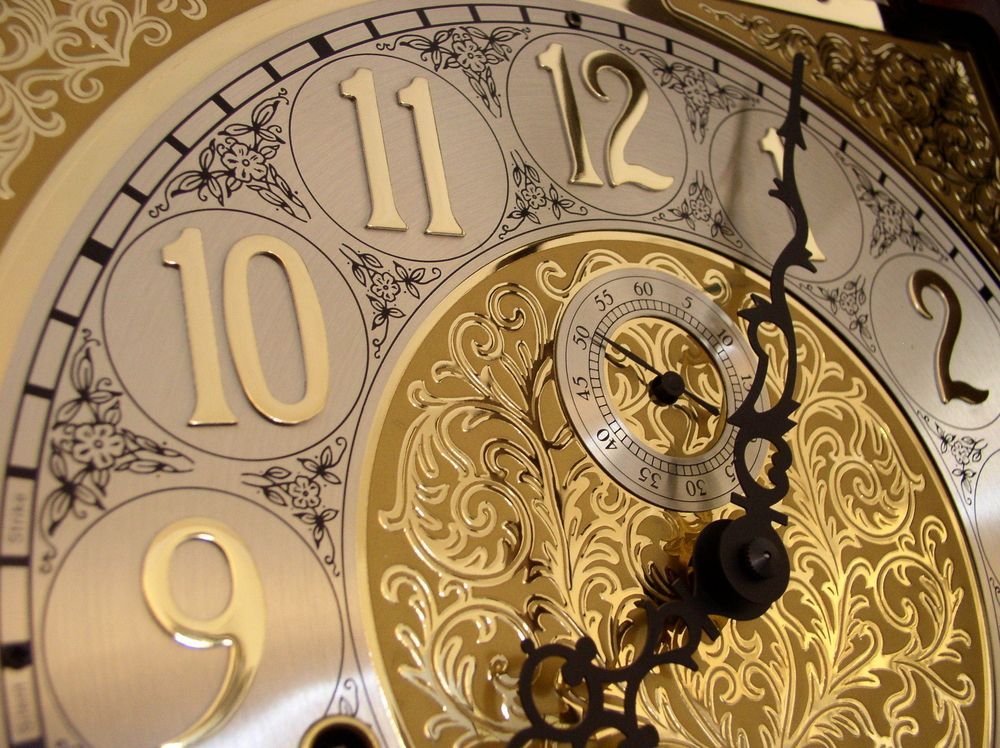Why You Should Consider Battery Wall Clock Replacement
Wall clocks are more than just timekeeping devices—they're an integral part of home decor, nostalgia, and functionality. While battery-powered wall clocks are convenient and offer hassle-free operation, their batteries don't last forever. When a clock stops ticking, replacing its battery might seem like a small task, but understanding the reasons, methods, and benefits of battery replacement can significantly enhance the life and performance of your wall clock. Let's explore why replacing the battery in your wall clock is essential and why professional services, like those offered by the Chicago Clock Company, are a smart choice.
Why Battery Wall Clocks Are So Popular
Battery-powered wall clocks have grown in popularity over the past few decades, and for good reason. Unlike traditional wind-up clocks, battery wall clocks do not require manual winding, making them highly convenient for busy lifestyles. They come in an array of designs and sizes to match any decor, offering both aesthetic appeal and utility.
Battery wall clocks are also known for their quiet operation. Many modern models operate with a quartz movement, which is precise and keeps time accurately without the need for constant adjustments. The only maintenance they typically require is periodic battery replacement.
Signs That Your Battery Wall Clock Needs a New Battery
Over time, a wall clock may exhibit subtle signs that its battery needs replacing. Here are some key indicators:
· Clock Running Slow: If you notice your clock falling behind, even by a few minutes, it might mean the battery is weakening. Quartz clocks, in particular, will start to lag as their power source diminishes.
· Intermittent Stopping and Starting: When a battery begins to lose power, it may cause the clock to stop and start irregularly. This behavior often indicates that the battery is reaching the end of its life.
· Complete Stop: Of course, if your wall clock has stopped entirely, it is very likely that the battery has died and needs replacement.
· Faded Display or Dimming Lights: In clocks with digital displays or backlights, a weak battery may cause the display to fade or the light to dim.
While it may be tempting to overlook these issues, prompt replacement can prevent long-term damage to your clock and ensure it continues running smoothly.
Choosing the Right Battery for Your Wall Clock
Not all batteries are created equal, and selecting the right one for your wall clock is crucial. Typically, AA or AAA alkaline batteries are used for battery wall clocks, but high-quality brands can make a noticeable difference in longevity and performance.
1. Alkaline Batteries: These are the most common type for wall clocks and provide long-lasting power for most household clocks.
2. Lithium Batteries: If your wall clock operates in an area with fluctuating temperatures (like a porch or garage), lithium batteries are a reliable choice as they withstand temperature variations better than alkaline batteries.
3. Rechargeable Batteries: Although eco-friendly, rechargeable batteries may not be ideal for wall clocks, as their voltage is generally lower than standard batteries and may affect the clock's accuracy.
When in doubt, check your clock's manufacturer recommendations or consult a clock professional to help you choose the best battery type.
Benefits of Professional Battery Replacement for Wall Clocks
You might think replacing a clock battery is a simple DIY task, but there are several benefits to seeking professional assistance:
· Avoiding Damage: A professional can handle your clock with care, ensuring the battery compartment or mechanism is not accidentally damaged during replacement.
· Cleaning and Maintenance: During battery replacement, professionals often conduct a quick inspection and cleaning, removing dust or debris that may have accumulated.
· Identifying Potential Issues: A clock specialist can spot other underlying issues, such as corrosion or misalignment, which might affect your clock's operation.
· Advice on Battery Choice: Professionals have extensive knowledge about battery types and can recommend the best option based on the model and environment in which your clock is used.
The Risks of Ignoring Battery Replacement
Ignoring battery replacement can lead to several potential issues for your wall clock:
· Corrosion: Old batteries can leak, causing corrosion that damages the battery compartment and potentially ruins the clock mechanism. Battery leakage can also pose a health hazard, as the chemicals are harmful if they come into contact with your skin or household surfaces.
· Reduced Accuracy: A weakening battery can cause the clock to lose accuracy, diminishing its primary function. Over time, you may find yourself frequently adjusting the time.
· Increased Wear and Tear: A battery running at low power can place extra strain on the clock's internal components, potentially leading to more costly repairs down the line.
Replacing your battery promptly can protect both your clock and your wallet from these avoidable issues.
When to Seek Clock Repair Instead of Battery Replacement
If you've replaced the battery in your wall clock and it still doesn't work, it may indicate a mechanical issue that requires professional repair. Here are a few situations where repair, rather than replacement, may be necessary:
1. Consistent Time Loss or Gain: If your clock is continuously running too fast or too slow, even with a new battery, it could be a sign of a malfunctioning quartz mechanism.
2. Unusual Noises: Clicking, grinding, or buzzing noises could indicate a mechanical issue within the clock.
3. Physical Damage: If the clock has sustained physical damage, such as a cracked face or loose hands, replacing the battery alone will not restore its functionality.
The Chicago Clock Company offers expert repair services, ensuring that your wall clock is restored to its original condition and keeps accurate time. With trained technicians and a commitment to quality, we can resolve nearly any clock issue.
Extending the Life of Your Battery Wall Clock
While battery replacement is inevitable, a few proactive steps can help extend the life of your clock's battery and keep it running smoothly:
· Use Quality Batteries: Cheap batteries may save you money upfront, but they often need replacement more frequently. Investing in high-quality batteries is more cost-effective over time.
· Avoid Extreme Temperatures: Battery performance can decline significantly in very hot or cold environments. If possible, avoid placing your clock in direct sunlight or near heating/cooling vents.
· Regular Cleaning: Dust buildup inside the clock can affect its mechanism. Regular dusting and occasional professional cleaning can keep your clock in optimal condition.
· Replace Batteries Promptly: Don't wait until the battery is completely dead to replace it. Replacing it at the first sign of slowing can prevent unnecessary strain on the clock mechanism.
Environmental Impact of Battery Wall Clocks and Battery Disposal
Many people don't consider the environmental impact of battery disposal, but it's an important factor in clock maintenance. Proper disposal of used batteries is essential to prevent hazardous chemicals from leaching into the soil and groundwater. You can take your used clock batteries to designated recycling centers.
Why Choose the Chicago Clock Company for Battery Wall Clock Replacement
For over a century, the Chicago Clock Company has built a trusted reputation as a premier clock specialist in the Chicago area. From basic battery replacements to intricate clock repairs, our team is dedicated to providing top-notch service for all types of clocks.
When you bring your battery wall clock to the Chicago Clock Company, you benefit from:
· Expert Technicians: Our team is composed of skilled clock repair professionals who understand the intricacies of different clock models and mechanisms.
· Quality Service: Whether it's a simple battery replacement or a more complex repair, each service is performed with the utmost care and attention to detail.
· Free Estimates: With free estimates provided on-site, you can have peace of mind knowing what to expect in terms of cost and service.
· Quick Service: We understand that your time is valuable, which is why many battery replacements and minor repairs are performed while you wait.
· Comprehensive Clock Services: Beyond battery replacement, we offer a wide range of clock services, from routine maintenance to full restorations, for both antique and modern timepieces.
Schedule an Appointment Today
Don't let your battery wall clock run down and risk damage or accuracy issues. Trust the Chicago Clock Company for professional, reliable service that keeps your clock running smoothly. Whether you need a quick battery replacement or an in-depth repair, our team is here to help. Contact us today to learn more about our services or to schedule an appointment. We offer free estimates while you wait and take pride in our expertise and quality care. Let us help you preserve the beauty and functionality of your wall clock for years to come!











